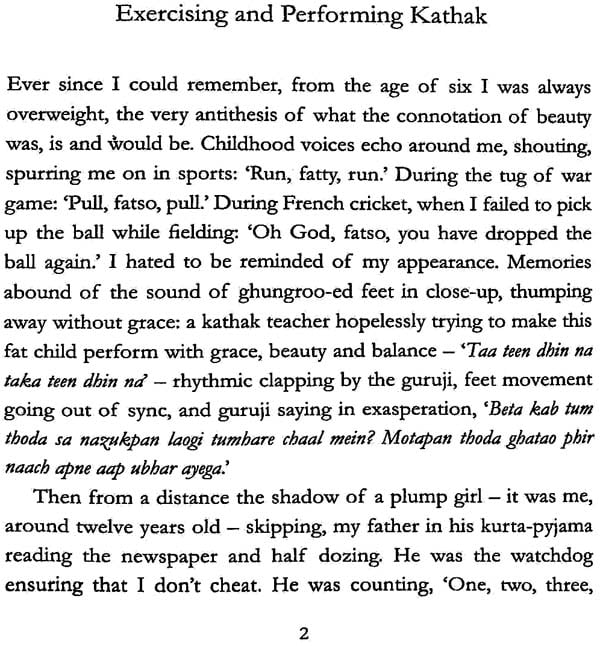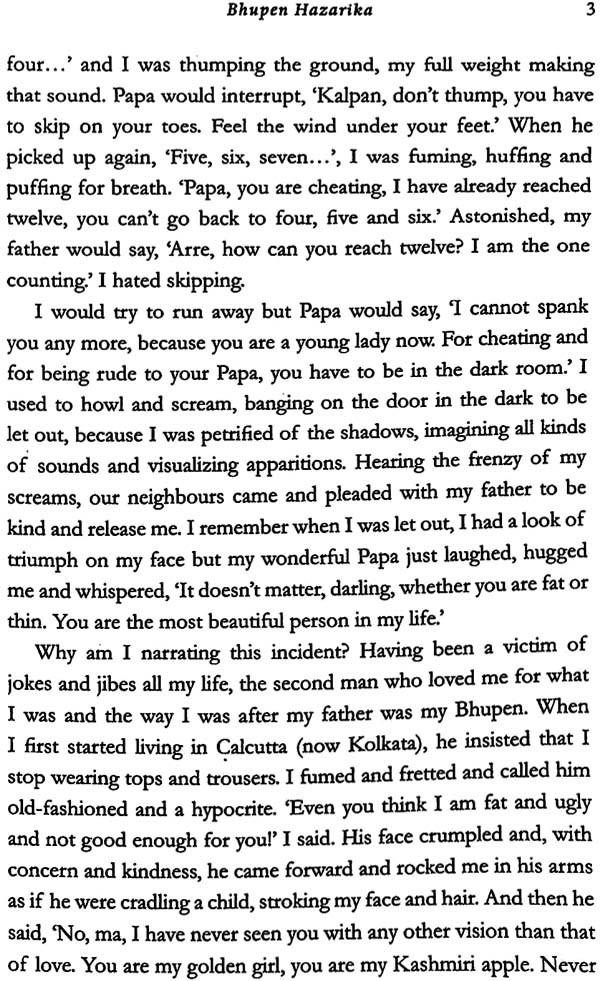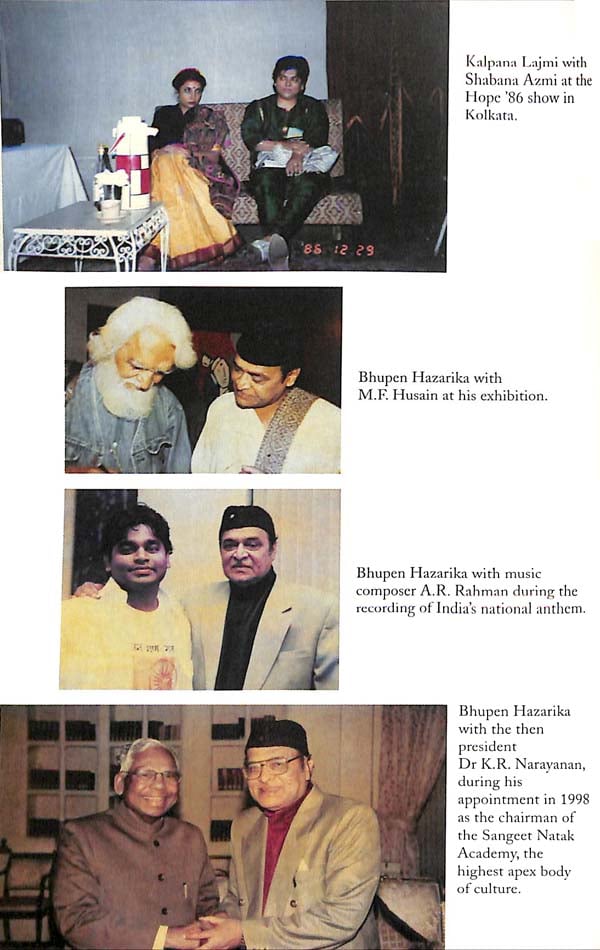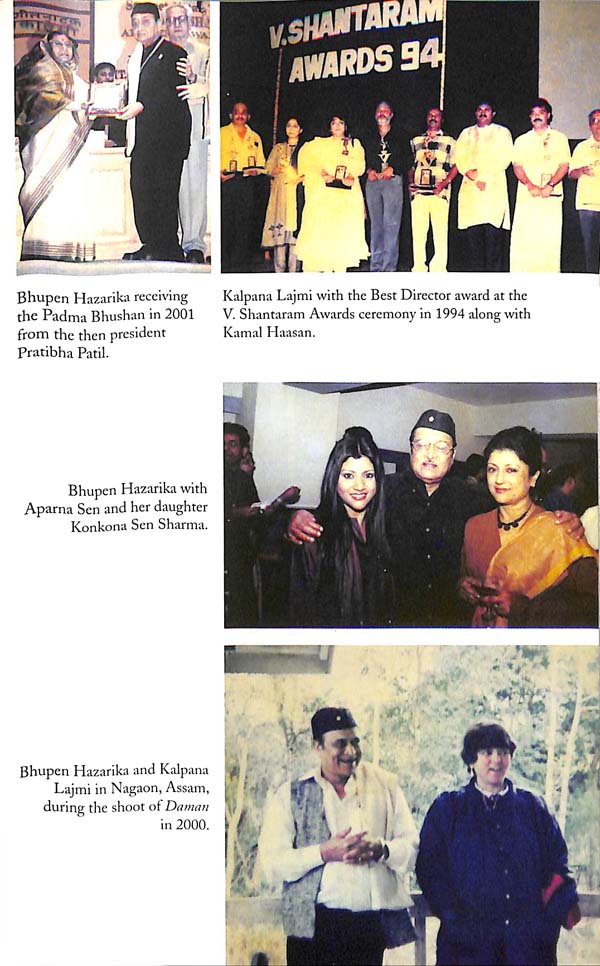
Bhupen Hazarika (As I Knew Him)
Book Specification
| Item Code: | NAQ512 |
| Author: | Kalpana Lajmi |
| Publisher: | Harper Collins Publishers |
| Language: | English |
| Edition: | 2018 |
| ISBN: | 9789353023355 |
| Pages: | 243 (17 Color & 12 B/W Illustrations) |
| Cover: | PAPERBACK |
| Other Details | 8.50 X 5.50 inch |
| Weight | 200 gm |
Book Description
We all know Bhupen Hazarika as a singer-composer, poet and lyricist nonpareil. What about the man behind the legend?
Kalpana Lajmi met Bhupen Hazarika when she was only seventeen. He was forty-five. She was with Bhupen Hazarika when he breathed his last, at the age of eighty-five. It was by all accounts a tumultuous relationship that defied convention. A film-maker in her own right, who directed critically acclaimed films like Ek Pal, Rudaali and Darmiyaan, Kalpana devoted her life to managing his career and putting together his vast body of work for a museum in his name, after getting into a live-in relationship with him when still in her teens. At the age of eighty, Hazarika offered to marry her, but she refused.
Told through the lens of Kalpana Lajmi, this free-flowing memoir, moving back and forth across time, defies description, much like the love story it narrates. Bhupen Hazarika: As I Knew Him is the story of a charismatic and passionate man who used his art as an instrument for social change, and a woman, a fierce feminist, who has never cared much about societal norms, and yet who stood by him despite his mercurial ways, unreasonable tantrums and his unwillingness to recognize her as a companion. Lajmi's no-holds-barred narrative provides an unforgettable glimpse of the man behind the legend.
Kalpana Lajmi, daughter of well-known painter Lalitha Lajmi and niece of Guru Dutt, directed six critically acclaimed films — Ek Pal (1986), Rudaali (1993), Darmiyaan (1997), Daman (2001), Kyun (2003) and Chingaari (2006) and a documentary called D.G. Movie Pioneer based on Bengali film-maker Dhiren Ganguly. She also directed the TV serial Lobit Kinaare (1988) for Doordarshan and twenty-six episodes of a serial, Dawn, on the freedom movement of India for Star Plus.
Kalpana is a graduate of St. Xavier's College, Bombay.
I was seventeen, he was forty-eve. My eyes sparkled with love at first sight and I saw their reflection in his cycs just when the light of his life was about to be extinguished — forty years later.
He always said that both of us should celebrate our love story because it was a special, unique love given the conservative construct of society around us. Our lives, from youth to old age, was a continuous journey of mutual passion and love. We stepped into various chapters of our lives, sliding in and out of relationships with men and women, making memories along the way. We cherished some of them, but there were some we wished we could forget.
Bhupen Hazarika was born in a lower middle-class family in Assam, the eldest of ten siblings. Bhupen narrated a very interesting anecdote to me once. One winter, while he was taking a shower, his mother went into labour with her tenth child and his father shouted, Bhupen, what shall I name this baby boy?' Bhupen, though petrified of his father, replied, Deota, call him full stop!' Till his dying day he looked after all of them, educated them, got them work and jobs, made sure they got married, and continued to do the same with the second generation as well. All this must have taken a huge toll on his psyche.
Perhaps my entry in his life instilled in him peace, harmony and happiness and he became a comfortable householder with me. I was totally unaware of the friction and the complexities that enveloped the Hazarika household. We never discussed it and, perhaps, all the relationships that disintegrated in front of his eyes, the loss of his parents, sibling rivalry and jealousy, his wrecked marriage, disillusionment with his only son made him accept me and look upon me, I feel, with the love of a tender, concerned and caring father.
He completed his MA in political science from Banaras Hindu University (BHU) and went on to do his PhD in mass communication from the Ivy League college of Columbia University in New York. He could have continued to remain in the USA. But he chose not to. He returned to embrace poverty and attend to his true calling, that of a street singer, a 'fakir' as he called himself. Someone who dreamt, felt and breathed freedom and took it upon himself to spread that idea of freedom to the entire world.
I was a protected seventeen-year-old from an upper-class background — a celebrated film-industry one at that. Yet, I had a childhood full of agony and pain, because my father, whom I loved, was an incorrigible alcoholic. So, was it that I jumped from the frying pan into the fire? Was it because Bhupen was my father's age that I subconsciously got attracted to him? Was it because I contributed to Bhupen's reinvention and weaned him from self-destruction and alcoholism that I felt redeemed? Because what I had not been able to do for my father, I managed to do in the case of Bhupen.
I was innocent and starry-eyed from the innumerable Mills & Boon romance novels I had been reading at that age. When I met the forty-five-year-old Bhupen, I instantly thought of the `dhumuha', which, in Assamese, means a short tempestuous storm that swirls across the riverine civilization bordering the Brahmaputra. Bhupen epitomized that storm. The dhumuha is eternal and comes year after year to sweep everything and everyone away in its wake. Bhupen's personality at forty-five was like the dhumuha: charismatic, wild, passionate, talented, with an unmatched intellect; and yet which, like the whirlwind, loved, empathized, and uplifted, especially his region, the north-east, to integrate it into a brotherhood with India. I was partially aware of his background. But I fell in love like any young girl would with the crease of his smile, the crinkle of his eyes, the silvery warmth of his laughter, his gentleness and his all-encompassing generosity. I understood the meaning of the word `dhumuha' only after I saw in my mind's eye the wild, lumbering, dark passion that enveloped Bhupen. I saw him walking, talking, singing, communicating, laughing and I whispered to the wind, 'O, dhumuha, you are my Bhupen, charismatic, wild, passionate, prodigious.' He refused to be contained within the boundaries of relationships and artistic conventions. love for his riverine civilization and spread it to the entire world.
At forty-five, coming from a different generation and background, Bhupen Hazarika was bewildered and could not comprehend this display of love and passion from a girl almost three decades younger. She was nowhere his ideal mate. She did not know his language, his poverty, his pain, his anguish and musical angst. She did not know what humiliating oppression he had been through with society in Assam for being the voice of the downtrodden, a voice that railed against the exploitative establishment and the tyrannical Brahminical caste system. I didn't know where Guwahati was, and when I asked him one day, his demeanour changed, and he sternly replied, `Don't behave like an ignorant, arrogant Xavierite Brahmin.' I had completed my education from St. Xavier's College, Bombay (now Mumbai), and I came from the exalted background of the Saraswat Brahmin community originally from the lush valley of Kashmir.









